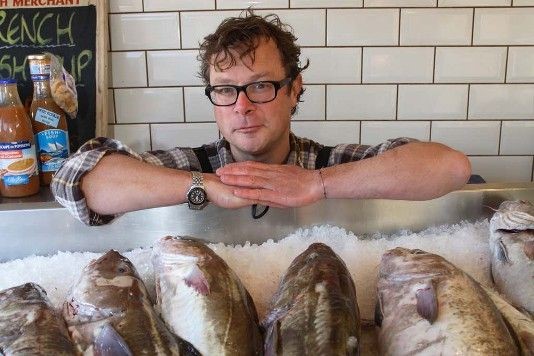How effective have major food campaigns really been?

From Jamie's School Dinners to Hugh's Fish Fight, we take a look at what effect several high-profile campaigns have had.
There have been a host of food campaigns in recent years, highlighting everything from our poor treatment of fish to the quality of school meals.
Many of these have been accompanied by major TV series and backed by big names from the worlds of politics and entertainment.
Let’s take a look at some of the most high profile cases and what each one has achieved.
Hugh’s Fish Fight
Appalled by the amount of discarded, dead fish thrown back into the water, chef Hugh Fearnley-Whittingstall went to find out more about intensive fishing.
He discovered that over one million tonnes of fish were being discarded, mainly as a result of draconian EU quotas.
As a result, Hugh’s Fish Fight was launched in 2011 to coincide with the TV series of the same name. And its shocking footage and facts provoked a huge public response across Europe, which led to changes from retailers, restaurants and, finally, government.
What happened? Before the first programme had aired, Tesco announced that it was going to swap to pole- and line-caught tuna. Some were also persuaded to try different kinds of fish.
Much more significantly, in the long term anyway, pressure was put on European politicians to end the practice of discards.
A ban is to be phased in from next January, although the exact details are still to be agreed and ratified.
Jamie’s School Dinners
In 2005, Channel 4 aired the series Jamie's School Dinners, which featured Jamie Oliver trying to improve the quality and nutrition of the school meals served at Kidbrooke School in Greenwich, London.
He struggled initially to win over both pupils and staff to his new menu ideas. But gradually momentum grew and he was able to pitch his ideas to government.
What happened? Jamie initially secured government funding for schools to offer support and advice on healthier food. But when he returned to Kidbrooke in 2006, he discovered a mood of rebellion in the air and the school kitchen losing money. He imposed a junk food amnesty, where children could exchange unhealthy food for tokens for healthier meals.
He secured additional funding from the government, rules on what schools could serve (although academies and free schools are now exempt), a ban on the sale of confectionery and fizzy drinks, and a voluntary code of conduct on advertising junk food to children.
However, some people have said that the campaign inadvertently backfired, as parents withdrew their children from school meals (arguably as a result of pressure from the kids). Instead, they sent children into school with much less healthier packed lunches.
So while it may have improved standards for the children still eating school meals, the campaign didn’t entirely succeed. In recent interviews, Jamie has sounded disillusioned about the Government’s failure to extend the rules to the growing numbers of academies.
Nonetheless, Hugh Fearnley-Whittingstall credits this series (and the earlier Jamie’s Kitchen) with paving the way for more series highlighting food issues. “His shows marked a crossover for campaigning TV from dry documentary to more mainstream popular TV,” he told the Guardian.
Hugh’s Chicken Run
An earlier Hugh Fearnley-Whittingstall campaign and series (also backed by Jamie Oliver) from 2008 that tried to persuade people to eat free-range chicken.
In the programme, Hugh set up both an intensive poultry farm and a free-range one to starkly illustrate the differences.
What happened? Sales of free-range chickens shot up by 35% in the weeks after the programme aired, with tales of shops and suppliers not being able to keep up with demand.
While things have improved the Chicken Out! campaign continues, in partnership with Compassion In World Farming. It wants to put pressure on countries still not enforcing last summer’s EU ban on battery cages and the sale of battery eggs.
Meat Free Mondays
The McCartney family have long been advocates of a vegetarian diet. Now Paul, Stella and Mary have taken that a stage further with the launch of Meat Free Mondays.
It aims to persuade people to eat no meat on one day each week, for both environmental and financial reasons.
There’s been a cookbook and plenty of high-profile media appearances from the McCartney clan (notably Sir Paul) to try and get the message across.
What happened? Several local governments around the world have introduced weekly meat-free days, including Ghent and San Francisco.
Support (from the general populace anyway) seems to be more muted here in the UK though. Council workers in Brighton got the city council to abandon plans for meat-free Mondays at a refuse collection depot.
Have any of these campaigns had an impact on your eating habits? Do you think they're all worthwhile? Let us know in the Comments box below.
How celebrity chefs have changed what we eat
Comments
Be the first to comment
Do you want to comment on this article? You need to be signed in for this feature